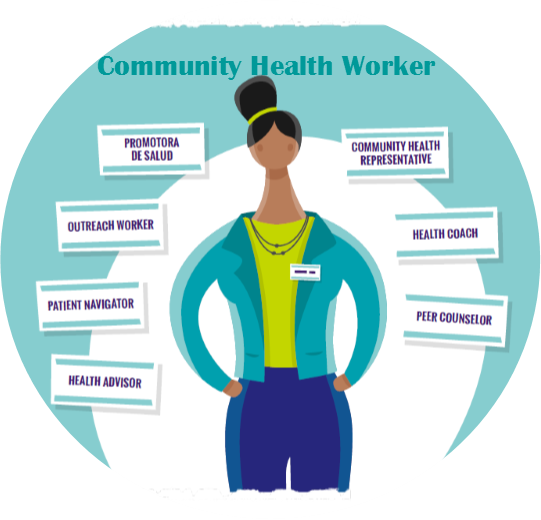Report: Community Health Workers Could Prove Key to Improving Healthcare, Reducing Costs
/Community health workers are frontline public health outreach workers who have a strong connection to the communities they serve, with an in-depth understanding of their experiences, culture, language, or needs. They serve as liaisons between individuals and clinical care and social service providers, helping to ensure that people get the care and services they need to be healthy and ensure that the care providers understand the issues in patients’ lives.
A new report by the Connecticut Heath Foundation zeros in on the varied role and responsibilities of community health workers and their impact - current and potential – in the health care system. “Community health worker” is a general term that includes a wide range of titles, including outreach workers, health coaches, and patient navigators.
Among the key facts in the report, Understanding Community Health Workers: Who They Are and Why They Matter for Connecticut:
Research shows that community health workers can improve health outcomes for people with conditions including diabetes, asthma, cardiovascular disease risks, and HIV. They also help ensure people receive preventive care.
Community health worker interventions can save money by leading people to use more appropriate health care services or reducing the need for emergency care.
Despite extensive research demonstrating their value, community health worker services are not integrated into the health care system and are not financed in a sustainable way. Most are funded through grants, rather than long-term funding sources.
The workforce consists largely of women of color, according to state and national studies.
“Community health workers can be critical in helping people to take care of their health, addressing both their medical needs and other issues that can affect their well-being, such as housing or food insecurity,” said Patricia Baker, president and CEO of the Connecticut Health Foundation. “There are often gaps between what happens in the doctor’s office and people’s daily lives, and community health workers are often best positioned to take a holistic approach and help to make sure patients are able to take care of their health.”
The report notes that in Connecticut, most community health worker programs “rely on grant funding, rather than a more stable payment stream through the health care or social service system. As a result, the services community health workers provide are often at risk of elimination when grant dollars end.”
“Over the years, the foundation has provided grants to support community health workers, many of which produced powerful results. However, once the grants ended, the community health worker services typically went away,” Baker added. “Because of the potential for community health workers to improve health outcomes and reduce disparities, we are now committed to finding a more sustainable way to finance community health workers to assure they can have a more secure place in the health care system.”
There are efforts occurring in nearly every state in the U.S. to better integrate community health workers into the health care system. One common approach is to create training or certification processes for community health workers. Connecticut does not currently certify community health workers, but a state panel recently recommended creating a voluntary certification system and legislators are considering it.
The report also points out that Connecticut does not currently certify community health workers. A 2017 law created a definition of “community health worker” in state statute and called for an advisory committee to study the feasibility of creating a certification plan. The group, the State Innovation Model Community Health Worker Advisory Committee, recommended in 2018 that Connecticut establish a voluntary certification process for community health workers.
That recommendation may be considered during the current legislative session, which is scheduled to end in June - potential action that reflects the “growing demand in health care to better link clinical care with the many factors outside medicine that influence patients’ lives. It also reflects an understanding of the importance of trust and relationships in improving health – two things that are central to what community health workers do.”
The report concludes by emphasizing that “a strong body of research has documented the powerful effect community health workers can have on patient outcomes, as well as their potential to save money for the health care system.” Community health workers, the report also indicated, “are particularly effective at reaching people who are not being well-served by the health care system and can play an important role in efforts to target health disparities.”
The Connecticut Health Foundation is the state’s largest independent health philanthropy dedicated to improving health outcomes for people of color. Since its creation in 1999, the foundation has awarded more than $62 million to nonprofit organizations and public entities to expand health equity, reduce health disparities, expand health coverage, and improve the health of all Connecticut residents.
This latest report complements previous research published by the Connecticut Health Foundation, including a brief and report identifying specific ways community health worker services can produce a positive return on investment and a report detailing how 15 other states handle certification for community health workers.

































